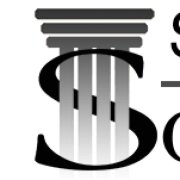Best Appeal Lawyers in Sanremo
Share your needs with us, get contacted by law firms.
Free. Takes 2 min.
List of the best lawyers in Sanremo, Italy
About Appeal Law in Sanremo, Italy
Appeal law in Sanremo, Italy, operates within the broader framework of the Italian judicial system. An appeal (“appello”) is a formal request for a higher court to review and change the decision of a lower court. This legal remedy is available in civil, criminal, and administrative cases. In Sanremo, which is situated in the province of Imperia in Liguria, appeals are typically handled by the regional courts of appeal (Corte d’Appello) located in larger cities such as Genoa, but local legal professionals and offices in Sanremo facilitate the process for residents and parties involved.
Why You May Need a Lawyer
Engaging a lawyer for an appeal in Sanremo is highly recommended due to the complexity of Italian legal procedures and the strict rules governing appeals. Common situations where you may require legal help include:
- Challenging a court verdict you believe to be incorrect or unjust.
- Defending against an appeal lodged by the opposing party.
- Seeking the overturn of a civil or criminal conviction.
- Disputing administrative decisions made by local authorities.
- Navigating procedural requirements, deadlines, and documentation for filing an appeal.
- Representing your interests in hearings before the appellate court.
- Reviewing the legal grounds and advisability of lodging an appeal in the first place.
Local Laws Overview
Appeals in Sanremo are governed by Italian national law, but some regional and local practices may influence the process. Key aspects include:
- Jurisdiction: Most appeals from Sanremo are heard at the Corte d’Appello in Genoa.
- Types of appeals: Both civil and criminal cases can be appealed, but the legal grounds for appeal differ.
- Deadlines: Appeals must be lodged within short and strict time frames, often 30 days from notification of the court decision.
- Procedural rules: Written submissions are required and must clearly set out the reasons for appeal (“motivi di appello”).
- Legal representation: The law typically requires you to be represented by a qualified lawyer before the appellate court, especially in complex matters.
- Costs: There are various court fees and, if you lose, you may be liable for the cost of the opposing party’s legal fees.
- Outcome: The appellate court can confirm, overturn, or amend the original decision, or in some cases, order a retrial.
Frequently Asked Questions
What is an appeal in the Italian legal system?
An appeal is a legal procedure where a higher court reviews the decision of a lower court, assessing both the facts and application of the law.
Where are appeals from Sanremo heard?
Appeals from Sanremo are generally heard at the Corte d’Appello in Genoa, though certain administrative appeals may go to specialized regional or national tribunals.
What is the deadline to file an appeal?
Typically, you have 30 days from the formal notification of the court’s decision to file an appeal, but certain cases may have different time limits.
Do I need a lawyer to file an appeal?
Yes, in most cases, a licensed lawyer (avvocato) must prepare and submit your appeal documentation to the appellate court.
Can new evidence be introduced during an appeal?
In criminal cases, new evidence may be admitted in the appellate stage. In civil cases, the appellate court mainly reviews the existing case record, with limited exceptions for introducing new material.
How long does the appeal process take?
The duration varies significantly, often taking several months to a few years, depending on the complexity of the case and the court’s schedule.
What happens if I lose my appeal?
If you lose, the original decision stands. You may also be ordered to pay the legal costs of the other party. In some cases, a further appeal to the Supreme Court (Corte di Cassazione) is possible.
Are there alternative dispute resolution options instead of appeal?
For certain civil and administrative matters, mediation or arbitration may be available as alternatives, but not as substitutes for a court-ordered appeal.
Will the appeal suspend the original decision?
In some criminal and civil cases, filing an appeal may suspend enforcement of the original decision, but this is not automatic and often requires a court order.
How do I choose a lawyer for my appeal in Sanremo?
Look for experienced, locally-based lawyers specializing in appeals. Consult the local bar association (Ordine degli Avvocati) in Imperia for recommendations or verification.
Additional Resources
There are several resources and organizations in and around Sanremo that can assist with appeal matters:
- Tribunale di Sanremo: The local trial court, where first-instance cases are heard and appeal information can be obtained.
- Corte d’Appello di Genova: The regional appellate court for Sanremo residents.
- Ordine degli Avvocati di Imperia: The local bar association, providing lawyer directories and information on legal representation.
- Comune di Sanremo - Ufficio Legale: The municipal legal office, offering guidance and administrative information.
- Public legal aid programs: Legal assistance for those who meet eligibility criteria, available at designated legal aid offices.
- Local citizen advice bureaus (Sportello dei Diritti): Assistance for procedural queries and general rights information.
Next Steps
If you need legal assistance with an appeal in Sanremo, take these steps:
- Gather all documentation related to your case, including court decisions, notifications, and evidence.
- Note the date you received the court’s decision to ensure you do not miss appeal deadlines.
- Contact a qualified local lawyer experienced in appellate matters as soon as possible for a consultation.
- Ask your lawyer to review the merits of your appeal and explain the process and costs involved.
- If eligible, inquire about accessing public legal aid to help with costs.
- Follow your lawyer’s guidance in preparing required documents and filing your appeal with the correct court.
- Attend all required meetings, hearings, or procedures as directed by your legal representative.
Lawzana helps you find the best lawyers and law firms in Sanremo through a curated and pre-screened list of qualified legal professionals. Our platform offers rankings and detailed profiles of attorneys and law firms, allowing you to compare based on practice areas, including Appeal, experience, and client feedback.
Each profile includes a description of the firm's areas of practice, client reviews, team members and partners, year of establishment, spoken languages, office locations, contact information, social media presence, and any published articles or resources. Most firms on our platform speak English and are experienced in both local and international legal matters.
Get a quote from top-rated law firms in Sanremo, Italy — quickly, securely, and without unnecessary hassle.
Disclaimer:
The information provided on this page is for general informational purposes only and does not constitute legal advice. While we strive to ensure the accuracy and relevance of the content, legal information may change over time, and interpretations of the law can vary. You should always consult with a qualified legal professional for advice specific to your situation.
We disclaim all liability for actions taken or not taken based on the content of this page. If you believe any information is incorrect or outdated, please contact us, and we will review and update it where appropriate.









